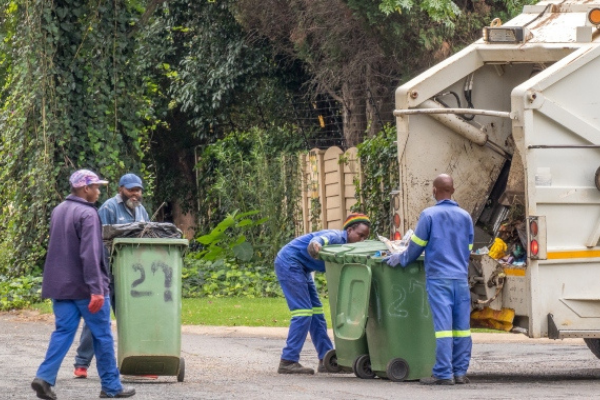In a startling revelation, the JB Marks Local Municipality in North West has paid its employees nearly R25 million in overtime over a mere three-month period. This shocking figure has prompted councillors to convene a special urgent meeting on Tuesday to discuss what many are calling excessive overtime payments.
The overtime disbursements occurred between July and September this year, with the highest earner reportedly receiving R72,000 for 176 hours of extra work completed in September. In contrast, the lowest overtime payment was R11,094.40 for 100 hours of additional work. The staggering amounts have raised eyebrows among municipal leaders.
“A grass cutter in our municipality earns between R6,500 and R7,000 per month and receives an additional R30,000 in overtime compensation. We want the chief financial officer and the municipal manager to explain when did these people work because it appears that they never slept and worked nonstop day and night, and we need proof of that,” said a councillor who wished to remain anonymous.
Most of the officials claiming this overtime are reported to be general workers, with some artisans among them. Documentation obtained by the news crew highlights the extent of staff benefit expenditure, further fuelling concerns over financial management within the municipality.
Another councillor, also speaking on the condition of anonymity, expressed frustration over the lack of oversight: “Why couldn’t they pick it up in the report, which is tabled in council every month? The item has surprised councillors, and many questions must be answered. This boils down to poor leadership; we hear from the corridors that the auditor general is complaining; evidently, we have fared worse in this upcoming financial report than in past years.”
The Basic Conditions of Employment Act No. 75 of 1997 states that employers may not authorise employees to work more than 45 hours a week or nine hours a day. It also specifies that, under ordinary working hours, employees cannot be forced to work more than 10 hours of overtime weekly unless a mutual agreement is in place. Furthermore, any daily work exceeding 12 hours is prohibited.
Overtime should be compensated at 1.5 times the employee’s regular rate, or employees can choose to take time off instead. However, these regulations do not apply to senior managers, travelling and sales employees, or workers who clock fewer than 24 hours a month.
In light of the overtime scandal, the Special Investigating Unit (SIU) has been granted a warrant to search the JB Marks Local Municipality premises to gather evidence related to ongoing investigations. SIU spokesperson Kaizer Kganyego stated that the agency is looking into allegations of serious maladministration concerning the procurement of contracts for goods, services, and works, particularly regarding the construction of a flood line canal next to the N12 provincial road and Ikageng extension 11.
During their search, the SIU collected a variety of documents and devices deemed essential for auditing and compliance related to successful tenders awarded from January 1, 2015, to October 4, 2024. The municipality has been under scrutiny, with the Auditor General reporting a staggering R3.5 billion in irregular expenditure as of the end of June.
Despite the gravity of the situation, municipal officials have not responded to the news crew's inquiries, even after promising to do so. As the investigation unfolds, the JB Marks Local Municipality is facing mounting pressure to address financial mismanagement and clarify the circumstances surrounding the substantial overtime payments.

Follow Us on Twitter











